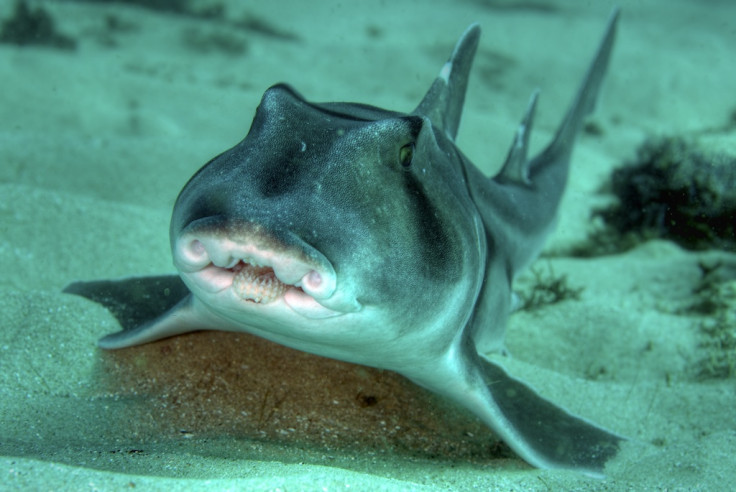Climate change study: Sharks to become smaller and inefficient hunters in warm acidic oceans

Sharks will become smaller, poorer hunters as a result of climate change, scientists have said. A team of researchers from the University of Adelaide in Australia used Port Jackson sharks to monitor what the effect of warmer water and higher levels of CO2 would have on them.
Port Jackson sharks are a type of bullhead shark and are found off the coast of southern Australia. While they can grow up to 1.65m in length, they normally range between 75cm and 95cm. They feed on sea urchins, molluscs, crustaceans and fishes, living near the bottom of the ocean.
In their study, published in the journal Scientific Reports, the team carried out experiments in large tanks with natural habitat and prey. They used expected warming and ocean acidifications forecast for the end of the century.
In warmer water, researchers found embryonic development was faster. However, when increased CO2 levels were combined with higher temperatures, the sharks had increased energy needs, reduced metabolic efficiency and destroyed their ability to find food through smell. As a result, shark growth rates reduced.

Researchers said the sharks took far longer to find their food or in some cases did not even bother trying. Ivan Nagelkerken, who led the study, said: "In warmer water, sharks are hungrier but with increased CO2 they won't be able to find their food. With a reduced ability to hunt, sharks will no longer be able to exert the same top-down control over the marine food webs, which is essential for maintaining healthy ocean ecosystems."
The team said their results suggest ocean acidification will have a detrimental effect on these predators' ability to exert a "strong top-down control over food webs", which will have a cascading effect throughout whole ecosystems. Previously, most research has looked at how ocean acidification and climate change will affect fish or small fish prey – with studies into large predators largely lacking.
Scientists note that ocean warming and acidification will not be uniform across the globe, and said shifts to the environment may result in shark migration: "The potential for sharks to migrate would also influence the type of ecological impacts these stressors impose as sharks are highly mobile species that are able to move vast distances. Sharks may be able to relocate to a more suitable habitat or higher latitudes thus affecting the strength of their interaction within the systems they leave behind and introduce new pressures to the new habitats they occupy."
Researcher Sean Connell added that their findings provide further warnings about overfishing sharks: "One-third of shark and ray species are already threatened worldwide because of overfishing. Climate change and ocean acidification are going to add another layer of stress and accelerate those extinction rates."
© Copyright IBTimes 2025. All rights reserved.






















